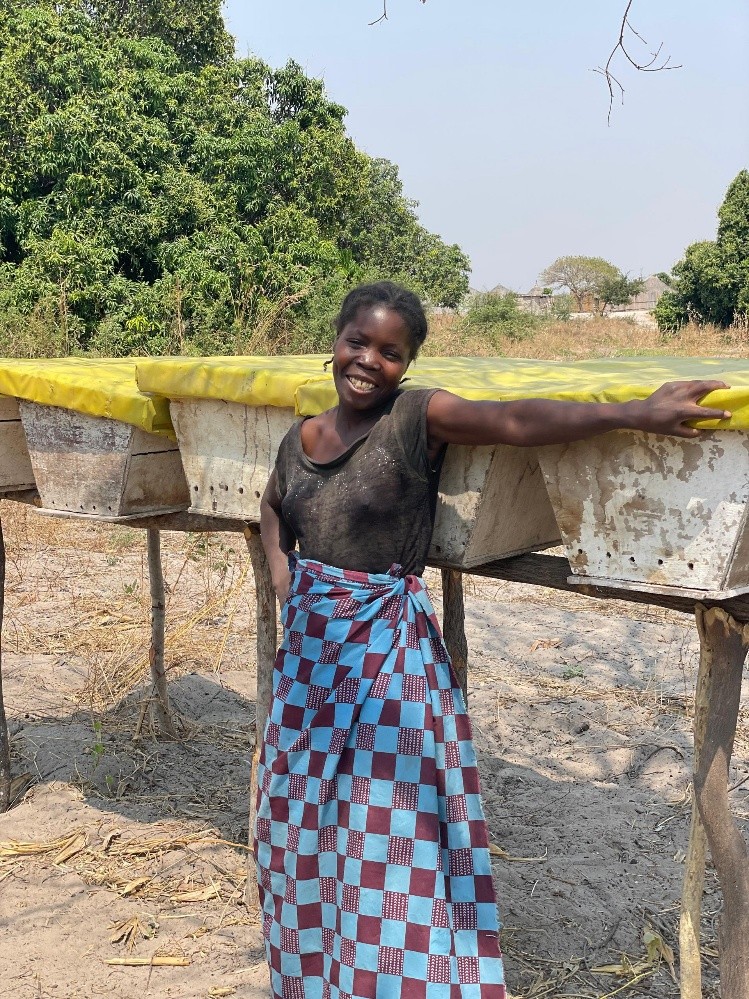In Sitoti community of Western Province, 37-year-old Nganga Mercy has found a new source of hope buzzing in her backyard, beekeeping. Married but without children, Mercy supports several dependants and has always depended on small-scale farming to sustain her household. But frequent droughts and low yields made it difficult for her to provide for her family.
When ADRA Zambia introduced training in production diversity through the Home-Grown School Meal Garden Project at Sitoti Primary School, Mercy was among the farmers selected to learn about livestock and non-traditional farming activities, including beekeeping.
“I am one of the few identified beneficiaries who received bee wax from the project after the training,” Mercy shared with a proud smile. “I got about 1.7 kilograms of bee wax, which was enough for me to set up my hives.”
Mercy already had five beehives from a previous Ministry of Agriculture program but had never received wax to start. “This project gave me the missing piece,” she said. “I’ve now applied the wax and learned how to attract bees to colonize the hives.”
Her goal is simple yet powerful, to generate income from honey sales and provide her family with nutritious honey. “The training we received was excellent,” she added. “We learned how to apply bee wax properly, maintain the hives, and care for the bees.”
Mercy’s gratitude is as pure as the honey she hopes to harvest. “Thank you, ADRA Zambia, for the knowledge you have given us. Even when the project ends, I will continue beekeeping on my own because now I know how to make and manage a beehive,” she said joyfully.
With support from Czech Development Aid through Mercy’s story, the Home-Grown School Meal Garden Project is proving that with the right knowledge and a little support, communities can build sustainable livelihoods, one beehive at a time.

